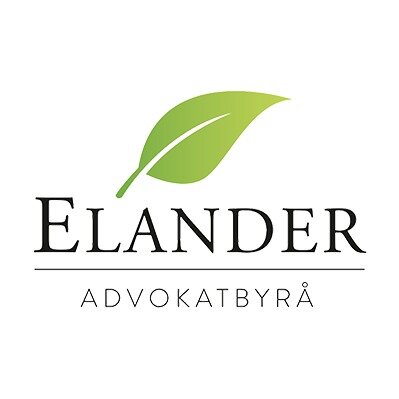
Best Probate Lawyers in Stockholm
Share your needs with us, get contacted by law firms.
Free. Takes 2 min.
List of the best lawyers in Stockholm, Sweden

About Probate Law in Stockholm, Sweden
Probate law in Stockholm, Sweden, deals with the legal process of administering the estate of a deceased person, resolving all claims, and distributing the deceased person's assets. This process ensures that the assets are distributed according to the will of the deceased or, if there is no will, in accordance with Swedish inheritance laws. Probate in Stockholm can involve various legal processes, including validating wills, valuing the estate, paying off debts, and distributing the remaining assets to the rightful heirs.
Why You May Need a Lawyer
There are several situations where you may require legal assistance for probate matters:
- Complex Estates: If the deceased person had a large or complex estate, a lawyer can help sort and value the different assets.
- Disputes Among Heirs: Legal disputes can arise among heirs or beneficiaries regarding the distribution of assets.
- Debts and Liabilities: A lawyer can advise on how to handle any debts and liabilities left by the deceased.
- Tax Issues: Navigating tax obligations related to the estate can be challenging.
- Will Validation: Legal guidance can be crucial if there is a will that needs to be validated or contested.
- International Assets: If assets are located in different countries, international probate law can be complex.
- Administrative Assistance: Handling the paperwork and legal documents required during the probate process can be daunting without professional help.
Local Laws Overview
Key aspects of local probate laws in Stockholm, Sweden, include:
- Inheritance Laws: Governed by the Swedish Inheritance Code (Ärvdabalken), which lays out who can inherit and in what proportions.
- Estate Inventory: An official inventory (bouppteckning) must be made and submitted to the Swedish Tax Agency (Skatteverket) within four months of the death.
- Executor of the Will: The will usually appoints an executor. If not, the closest heirs can act as co-executors.
- Legal Share (Laglotten): Children are entitled to a legal share of the estate (half of the inheritance they would have received in the absence of a will).
- Debts and Liabilities: The estate must be used to pay off any debts before assets are distributed to the heirs.
- Foreign Nationals: Special rules may apply to foreign nationals, especially regarding international estates.
Frequently Asked Questions
What is the first step in the probate process in Stockholm?
The first step is to create an estate inventory (bouppteckning), which lists all the assets and liabilities of the deceased. This must be submitted to the Swedish Tax Agency within four months of the person's death.
How long does the probate process take in Stockholm?
The length of the probate process can vary widely depending on the complexity of the estate and any potential disputes. On average, it can take anywhere from a few months to over a year.
Can I handle probate without a lawyer in Stockholm?
Yes, it is possible to handle the probate process without a lawyer, especially if the estate is simple and there are no disputes. However, legal advice can be invaluable in complex cases.
What happens if there is no will?
If there is no will, the estate is distributed according to the Swedish Inheritance Code, which outlines a hierarchy of heirs starting with immediate family members.
Are there taxes on inheritances in Sweden?
Sweden does not impose inheritance tax; however, other taxes such as capital gains tax may apply when selling inherited assets.
Can a will be contested?
Yes, a will can be contested on various grounds, including concerns about the validity of the will, undue influence, or questions about the mental capacity of the deceased when the will was made.
What is the role of the executor?
The executor is responsible for administering the estate, including managing the estate inventory, paying off debts, and distributing assets according to the will or legal guidelines.
What if an heir cannot be found?
If an heir cannot be located, their share of the estate may be held in trust for a certain period or eventually escheated to the state if they are not found.
Are handwritten wills valid in Sweden?
Yes, handwritten wills (holographic wills) are valid in Sweden as long as they are signed and dated by the testator and meet other legal requirements.
Do I need to notify creditors of the deceased?
Yes, creditors must be notified so they have the opportunity to make claims against the estate. This is typically part of the estate inventory process.
Additional Resources
For further information and assistance, you may find the following resources helpful:
- Swedish Tax Agency (Skatteverket): Provides guidelines and forms for estate inventory and other probate-related processes.
- Swedish Probate Registry: Manages and provides access to estate inventories and related documents.
- Legal Aid Authority (Rättshjälpsmyndigheten): Offers legal aid and assistance for those who qualify.
- Local Law Firms: Several law firms in Stockholm specialize in probate law and can provide professional assistance.
Next Steps
If you need legal assistance with probate matters in Stockholm, consider the following steps:
- Gather Relevant Documents: Collect all relevant documents, including the will, death certificate, and details of assets and liabilities.
- Consult a Lawyer: Seek professional legal advice to understand your specific situation and potential next steps.
- Contact the Swedish Tax Agency: Submit the estate inventory and any other required documents.
- Communicate with Heirs and Beneficiaries: Ensure transparent communication with all involved parties to prevent disputes.
Taking these initial steps can help you navigate the complex process of probate more efficiently and ensure that the deceased's wishes are honored while complying with Swedish laws.
Lawzana helps you find the best lawyers and law firms in Stockholm through a curated and pre-screened list of qualified legal professionals. Our platform offers rankings and detailed profiles of attorneys and law firms, allowing you to compare based on practice areas, including Probate, experience, and client feedback.
Each profile includes a description of the firm's areas of practice, client reviews, team members and partners, year of establishment, spoken languages, office locations, contact information, social media presence, and any published articles or resources. Most firms on our platform speak English and are experienced in both local and international legal matters.
Get a quote from top-rated law firms in Stockholm, Sweden — quickly, securely, and without unnecessary hassle.
Disclaimer:
The information provided on this page is for general informational purposes only and does not constitute legal advice. While we strive to ensure the accuracy and relevance of the content, legal information may change over time, and interpretations of the law can vary. You should always consult with a qualified legal professional for advice specific to your situation.
We disclaim all liability for actions taken or not taken based on the content of this page. If you believe any information is incorrect or outdated, please contact us, and we will review and update it where appropriate.










